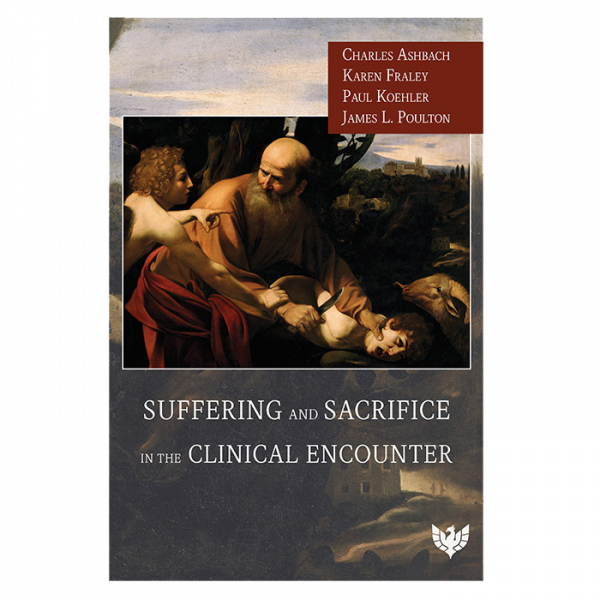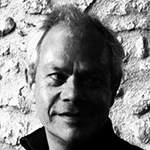Nominated for the Gradiva Award 2021
After eighteen frustrating months heading a specialist adolescent unit, Philip Stokoe applied for a training in consultation at the Tavistock Clinic based on the ‘Tavi’ aka ‘group relations’ model. This experience changed his life and, ultimately, led to this book, The Curiosity Drive: Our Need for Inquisitive Thinking. Embedding the training into his working life, Stokoe came to recognise the crucial importance of curiosity to the development of the mind. Alongside love and hate, it is a primary drive inside each of us. Without the desire to ‘know’, human evolution would take a very different path.
Philip Stokoe outlines the work of Freud, Klein, and Bion to provide a firm foundation to his exploration of individual development and how it relates to groups and organisations. He lays bare why so many organisations are dysfunctional, takes an in- depth look at the problems unique to psychoanalytic institutions, and gives clear insight into how groups function as a separate entity to the individuals involved. He also investigates curiosity’s shadow side, detailing the ‘alternative’ processes needed when it becomes a problem.
This is a truly excellent book for trainees, professionals, and anyone who has ever been frustrated by work!






R. Peter Hobson, Emeritus Tavistock Professor of Developmental Psychopathology, UCL –
‘Engaging, challenging, peppered with fresh ideas about the developing mind, organisations, and individual and couple relationships, this book is as lively as it is informative, as enjoyable as it is profound. Steeped in psychoanalytic thinking and enriched by systems theory and Shakespeare, the work is an inspiring expression of the author’s own curiosity and capacity for original and creative thought.’
Stanley Ruszczynski, psychoanalyst and Consultant Adult Psychotherapist (and past Director, 2005–2016), Portman Clinic –
‘Building on Bion’s positing of the necessity to add the urge for knowledge (K), to the urge to love (L), and the urge to hate (H), as the third primary human emotion, Philip Stokoe’s starting point, and central focus of this book, is that “curiosity … is central to the development and the maintenance of the mind”. He suggests that from early on infant development is driven by inquisitive thinking about their experiences and states of mind.
‘In a truly encyclopaedic re-examination of the Klein/Bion tradition of psychoanalytic theorising, Stokoe demonstrates his view that, by focusing on the curiosity drive in the course of human development, our understanding of the growth of the mind is significantly changed and that this change is crucial to our understanding of how human beings behave and relate to each other.
‘The book has depth in its theoretical explorations and breadth in its descriptions of the applications of that theorising, and will be of great interest both to those wanting to learn about the development of psychoanalytic thinking concerning human development, and to experienced practitioners who will be encouraged and enabled to apply that orientation to work with individual patients, with groups, and with institutions.’
Chris Mawson, training and supervising analyst of the British Psychoanalytical Society –
‘Freud (1915, p. 194) wrote of the young child “working with the energy of curiosity” in seeking to extend himself in the domain of knowledge. For this impulsion he used the term Wißtrieb, a term that subsequently has been translated variously as an “impulse to investigate”, “epistemophilia”, “a drive towards knowledge”, and even the complex and problematic notion of a “truth drive”. In researching the subject with depth and breadth, in his own way and very much using his own voice, Philip Stokoe has worked with the energy of his own curiosity – a curiosity operating in several fields at the same time. Bringing together his experience and knowledge of psychoanalysis, theatre, and the workings of human groups, he has made a study of the subject with many discoveries. It will stimulate the hunger for new knowledge in a wide variety of readers, and by no means only those working in the fields of psychotherapy and psychoanalysis. As he implies at the outset, the term “application”, in relation to psychoanalytic ideas, can be used in an unhelpfully divisive way. I prefer to see his writing as bringing out, and articulating, the already-existing psychoanalytic, dramaturgical, and group-mentality dimensions of the phenomena. He does this to harness the normally occurring intransitive use of the term “being curious” to another specific function, that is to say the study of thinking. In this respect I rather like the sub-title of his book: “Our Need for Inquisitive Thinking”. Never before has this need been so pressing, in a time when an election has been fought by a political movement explicitly and openly antithetical to research and a scientific outlook.
Philip Stokoe is to be commended not only for writing such an interesting and well-informed book on such a crucial subject, but also for being willing to engage with its political ramifications.’
Jo O’Reilly, Psychoanalyst and Consultant Psychiatrist in Medical Psychotherapy –
‘Philip Stokoe has the gift of describing ideas which appear stunning in their novelty and originality whilst at the same time resonating with something we may intuitively have known but have until now been unable to quite put our finger upon or to articulate.
‘The breadth and scope of the ideas contained within these pages makes this a book for those with an interest in how we relate and function as a species, within groups and as individuals, in addition to those working in clinical and organisational settings. It is a book for the curious and seekers of meaningful ways to understand the dilemmas faced in everyday life and work.’
5-star Amazon review –
‘A brilliant new book by a fine thinker. Philip Stokoe is a brilliant thinker, speaker and teacher but, up until now knowledge of his work has been restricted to those professionals lucky enough to have been taught or trained by him, who have attended his popular seminars or read his analytic papers. This book brings his humour, clarity and straightforward dealing of complex subjects to the wider audience it merits. A psychoanalyst who thinks and writes about curiosity, love, politics, and his own excitement about learning, this book is a feast.’
Robert Snell, British Journal of Psychotherapy 37, 3 (2021) 517–519, © 2021 BPF and John Wiley & Sons Ltd. –
‘The opening chapters of this substantial, clearly argued and quietly passionate book rehearse a familiar Kleinian and Bionian account of the development of mind, from birth to adulthood; but Stokoe gives this story a new twist and new vitality by positing at its heart what, following Bion, he calls the K (i.e. knowledge) or curiosity drive. Without this, he argues, the story is incomplete. So he slows it down and gives it a “second look”‘
Amazon review: David Morgan, January 2021 –
5/5 stars: A Great Book
Stokoe writes with great lucidity about some of the most important issues of our times. Just take one chapter ‘Where have all the adults gone?’ in which he brilliantly demonstrates how our political leaders are often the least qualified to lead us due to their inability to think, and due to their lack of curiosity. This latter quality a great antidote to fundamentalist thinking. Readers will find great wisdom in these pages, written in the spirit of that great analyst Wilfred Bion. Stokoe continues this great legacy demonstrating his own curiosity inside and outside the consulting room. This book should be read by anyone interested in psychoanalysis, politics, sociology and life!
Jo Sansby, BACP Healthcare Counselling and Psychotherapy Journal Jan 2022 –
‘The Curiosity Drive sets you thinking and exploring your own thoughts, as you become curious. The title is therefore apt. I enjoyed reading the book and found it difficult to put down/ It would make a valuable addition to the library of anyone who is interested in how we think, including therapists from any modality or those interested in personal development.’